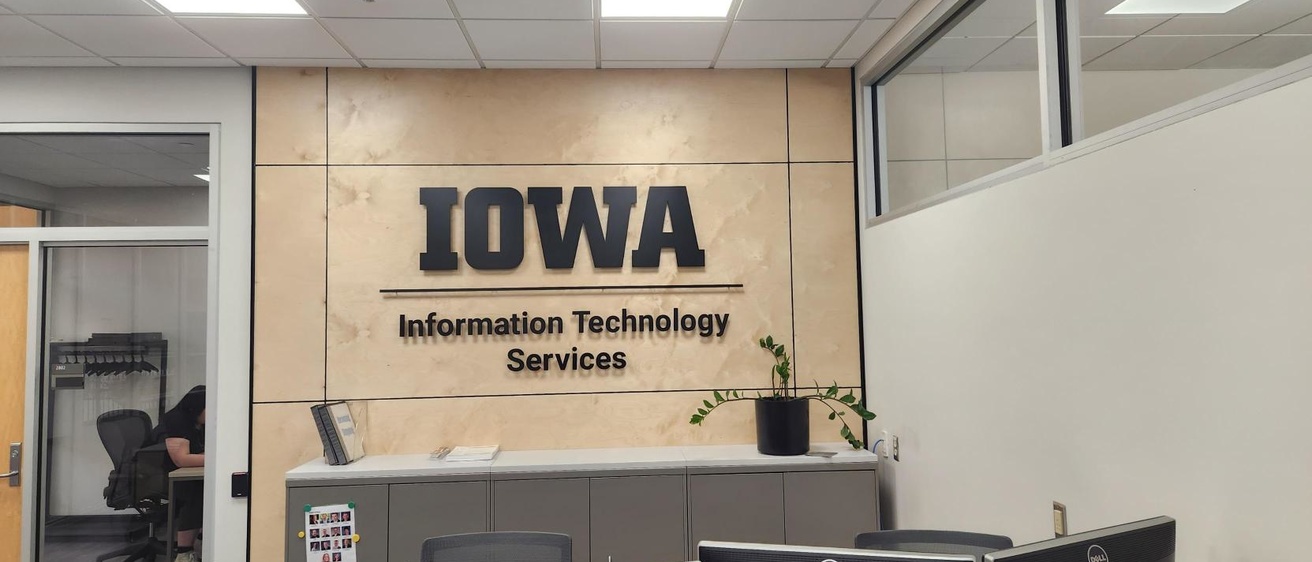
Breadcrumb
Enhancing security, systems, and infrastructure
OneIT is constantly bettering technologies, improving foundational infrastructure and security, and launching new services to meet the university’s needs. Here are some key projects completed in 2023.
Student mobile app: A new mobile app is being developed to support student engagement and success. Capabilities will include timely, tailored access to university resources, deep integration with university systems, and messaging relevant to their success. The project received P3 funding, a product manager was hired, and a vendor was selected. The effort is a collaboration between OneIT, the Division of Student Life, the Office of Strategic Communication, and the Office of the Provost.
Device security: IT professionals from OneIT and Health Care Information Systems (HCIS) installed a new endpoint protection product called Microsoft Defender to better protect university-managed devices against cyberattacks. The result is a better user experience, more flexibility for device-management teams to fine-tune configurations, and better reporting to help prevent and remediate attacks.
Network upgrades: OneIT, HCIS, and Purchasing completed the specification and purchase of a vendor DDI (DHCP/DNS/IPAM) system used to monitor and administer the university’s network and IP addresses. Upgrades underway to these new network architectures will enable substantially increased performance, increased high availability, and many new network services and security features.
Email security: Information Technology Services (ITS) began making changes to its email protection systems to help the university comply with Domain Message Authentication Reporting (DMARC), which protects email domains from being used for email spoofing and phishing scams. Some agencies and organizations are moving toward requiring email coming into their systems to be DMARC compliant.
Chemistry equipment pilot: The Department of Chemistry partnered with Agilent Technologies to establish a Demo Instrumentation Lab at the University of Iowa. Agilent contributed new instruments valued at over $550,000 for use by undergraduate students and research groups. The department worked to make a seamless transition to the new instruments during summer and fall 2023, minimizing impact on instruction while installing and calibrating the new equipment to start use in spring 2024.
Disaster recovery: The ITS Disaster Recovery Program completed its first yearlong cycle, establishing 42 recovery “runbooks” to be maintained by service owners. Sixteen runbooks were verified in a testing exercise, and a tabletop exercise on the impact of a severe geomagnetic storm to the regional power grid was conducted with OneIT leadership. A business impact analysis was reviewed to verify scope and discuss gaps in desired and achievable recovery metrics. With each annual cycle, staff will identify opportunities for training and other tactics improve the university’s level of preparedness for a disaster.
Financial aid processing: Administrative Information Systems (AIS) made changes financial aid processing tools to account for changes to the Free Application for Federal Student Aid (FAFSA). The process delivers $185 million to about 22,000 students per year. With the federal changes, data is pulled directly from Internal Revenue Service records. That brings in about 300 more fields, and the rules for who is eligible also changed. AIS staff worked closely with campus partners to implement these changes on a very tight timeline, building a second financial aid system in just six months.
Office Renovations: ITS completed significant renovations to its office space in University Capitol Centre (UCC), allowing the reallocation of about half of that space to other units and bringing together ITS staff from other buildings. The work included creating some new private office spaces and conference rooms, as well as hotel spaces for staff in remote or hybrid work arrangements to use when they come to campus. The Help Desk area was redesigned to improve accessibility, security, efficiency, and aesthetics. The Extended Technical Support Service Center is being relocated from Jessup Hall to the Lindquist Center, allowing expansion of its service offerings to units across campus.
Storage RFP: In partnership with the College of Engineering, ITS completed a request for proposals (RFP) for upgrades to key enterprise storage platforms in support of the UI enterprise, the College of Engineering, and Research Services. This RFP resulted in awards for five separate storage platform packages that will be implemented in 2024 and will enhance campus storage performance and capabilities for multiple services and stakeholders.
Asset management: The asset-management project completed in 2023 was a major collaborative initiative to consolidate and streamline the management of various types of assets across different colleges and units—in total, 57,213 items including computers, displays, mobile devices, and printers. Nine systems used by Tech Inventory (which covered the College of Liberal Arts and Sciences, Extended Technical Support, and other groups), the colleges of business, engineering, pharmacy, and public health, and Facilities Management, were brought into the unified platform, Cherwell. The next phases will include tying tickets to items and tracking more types of assets.